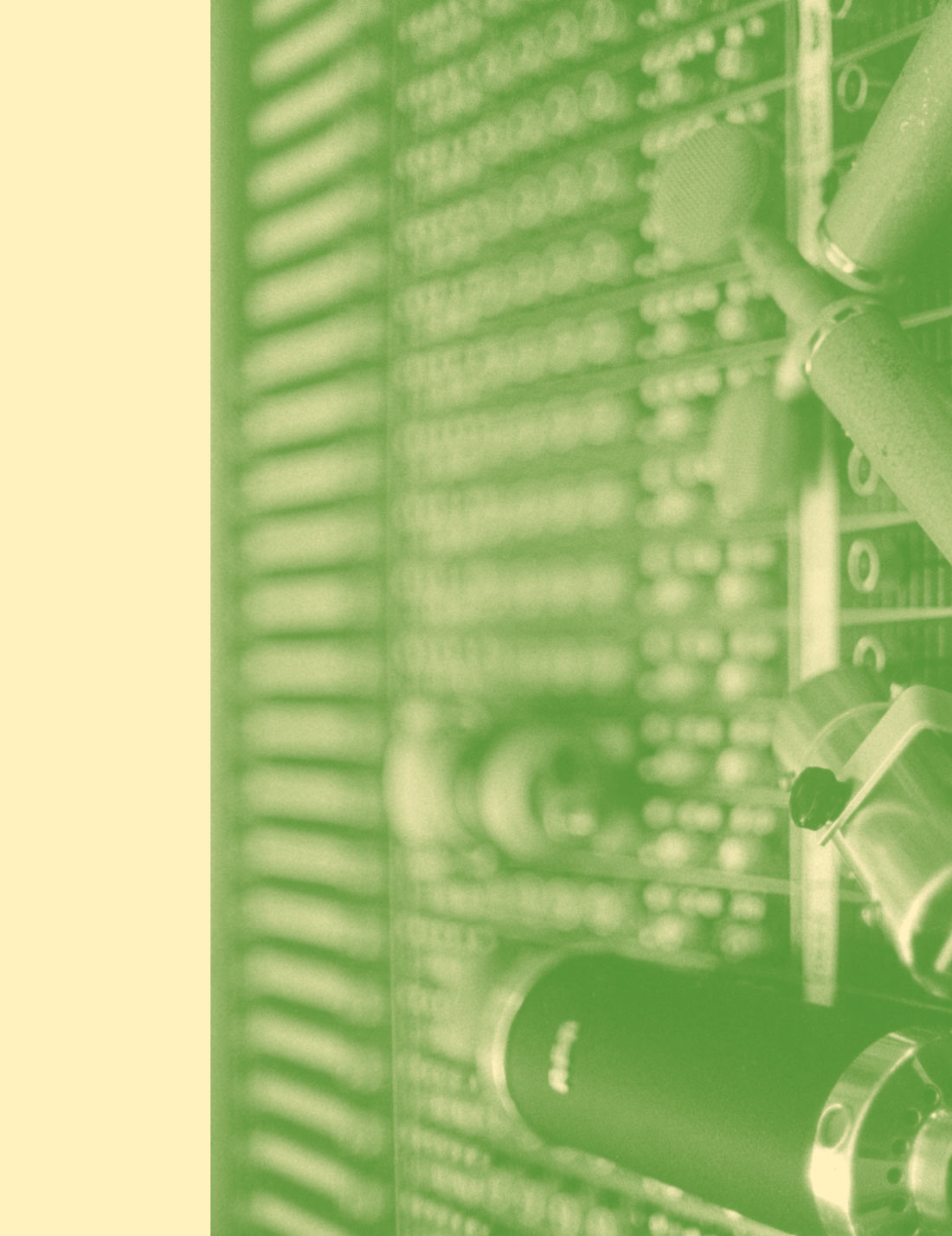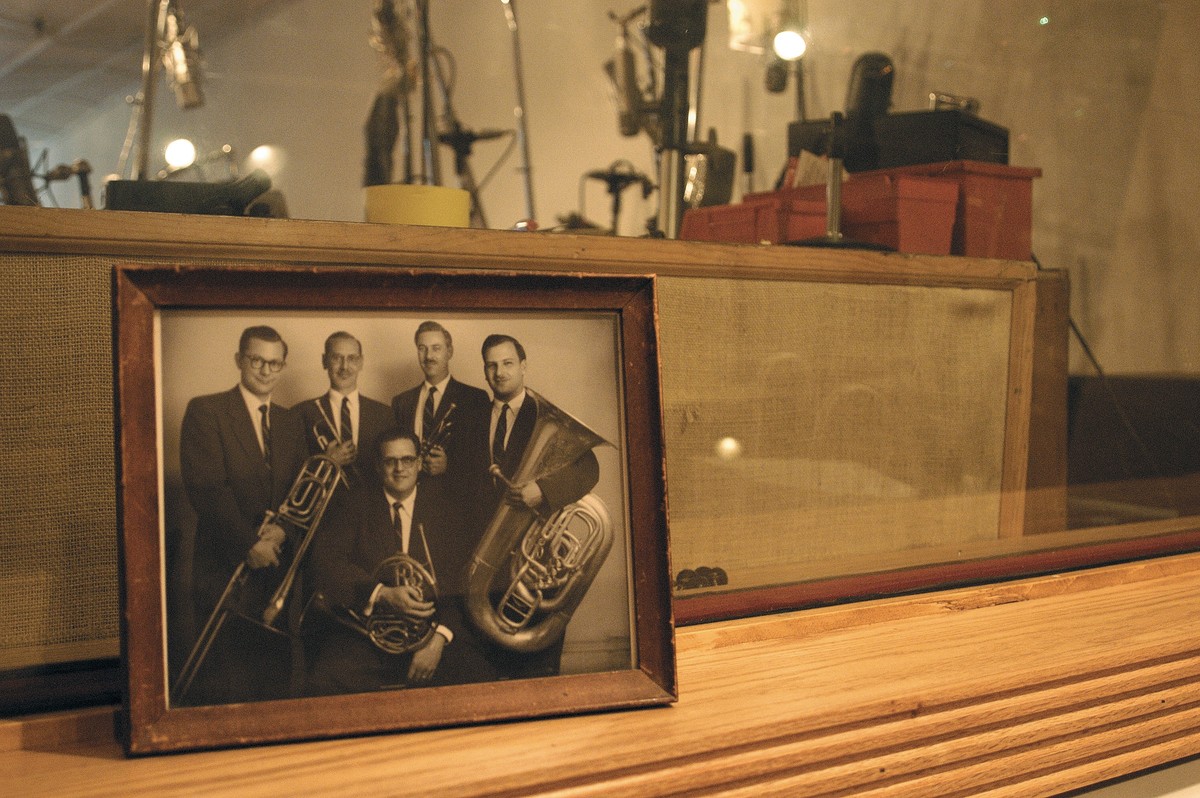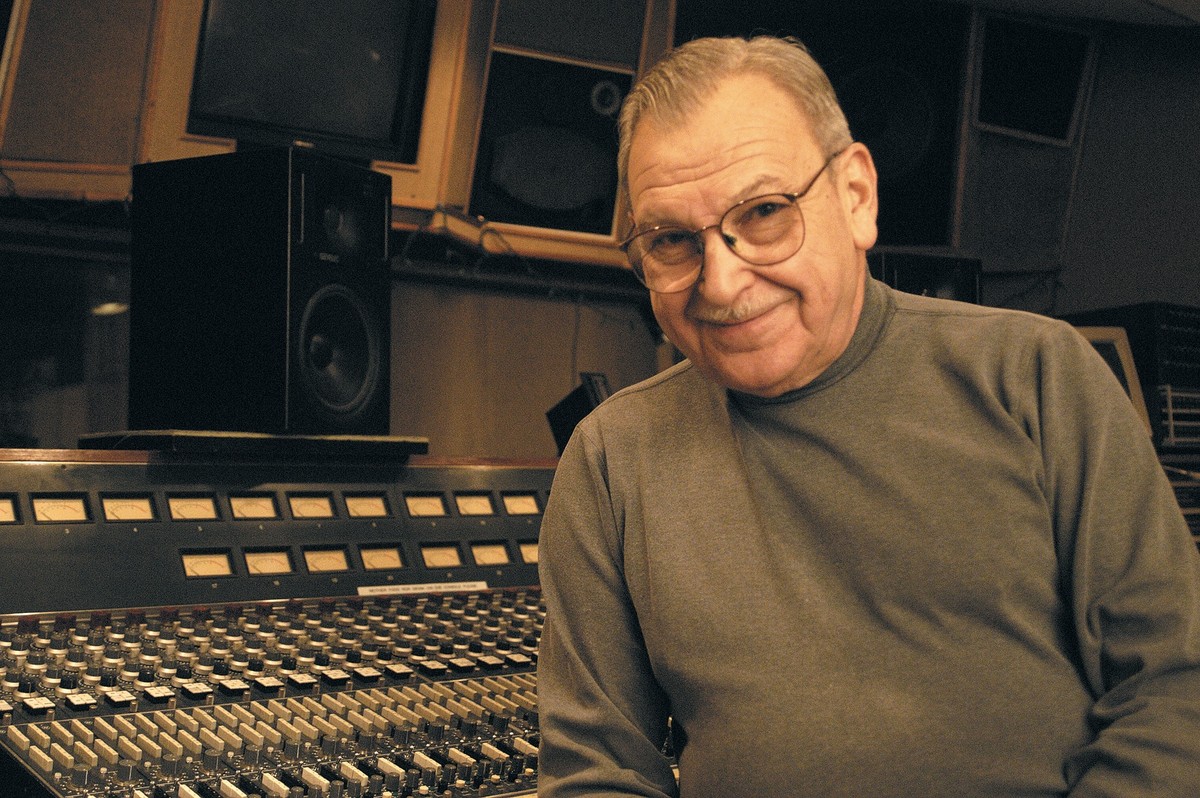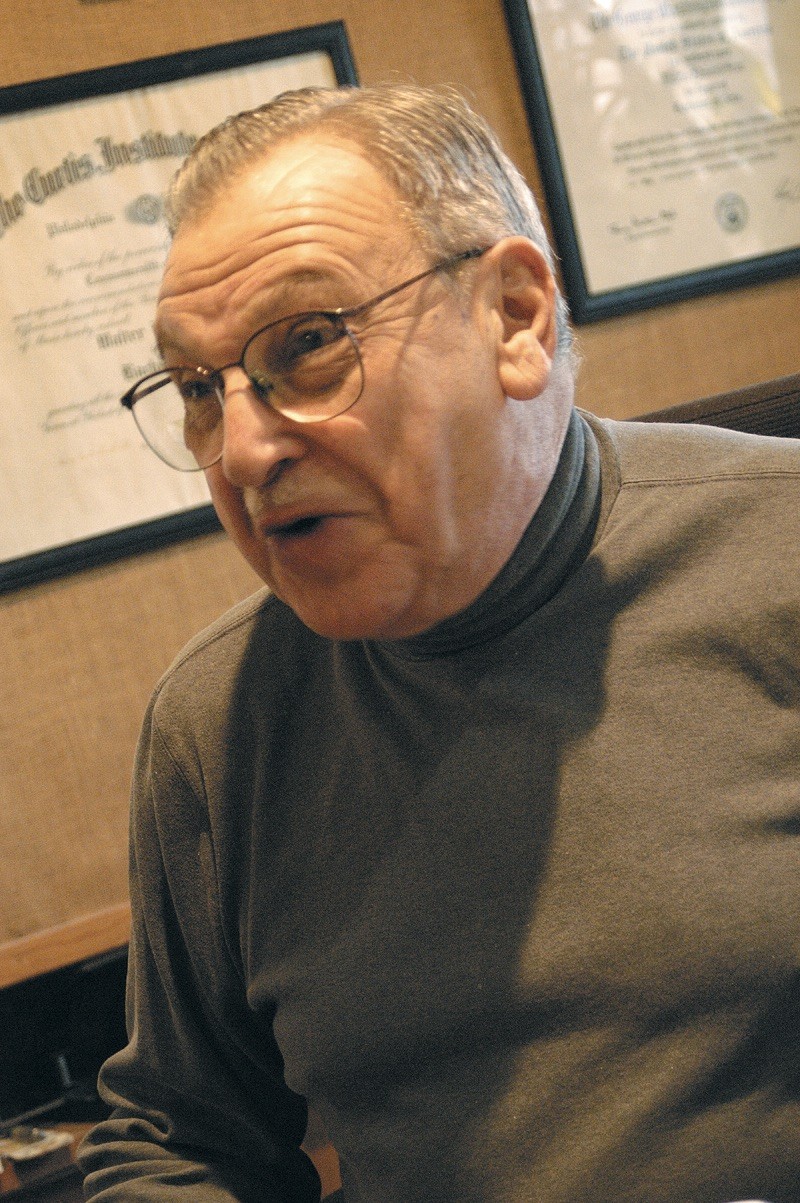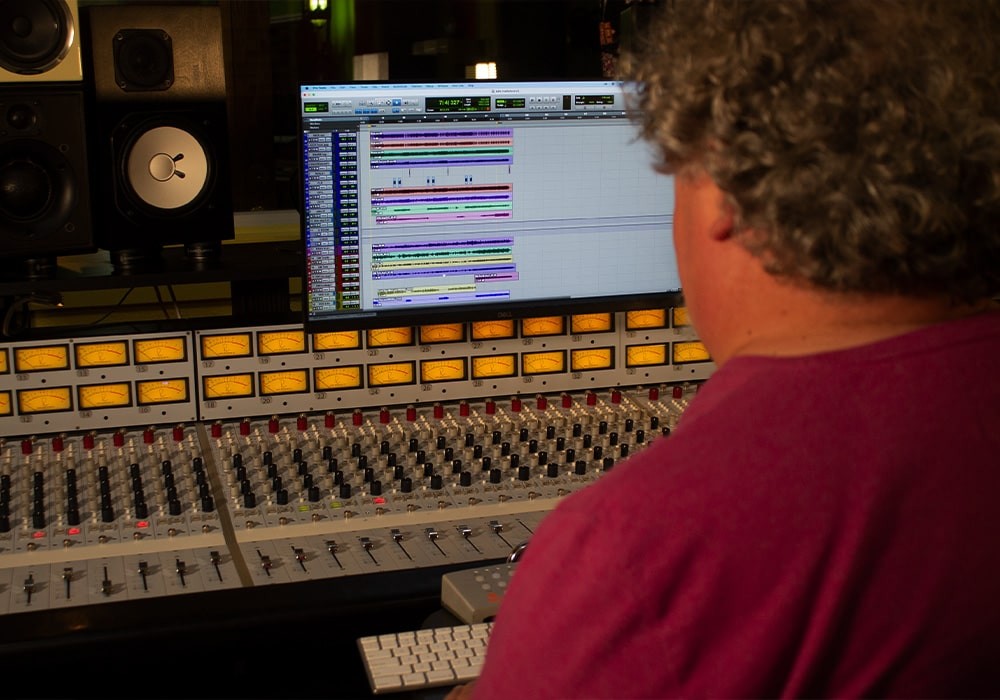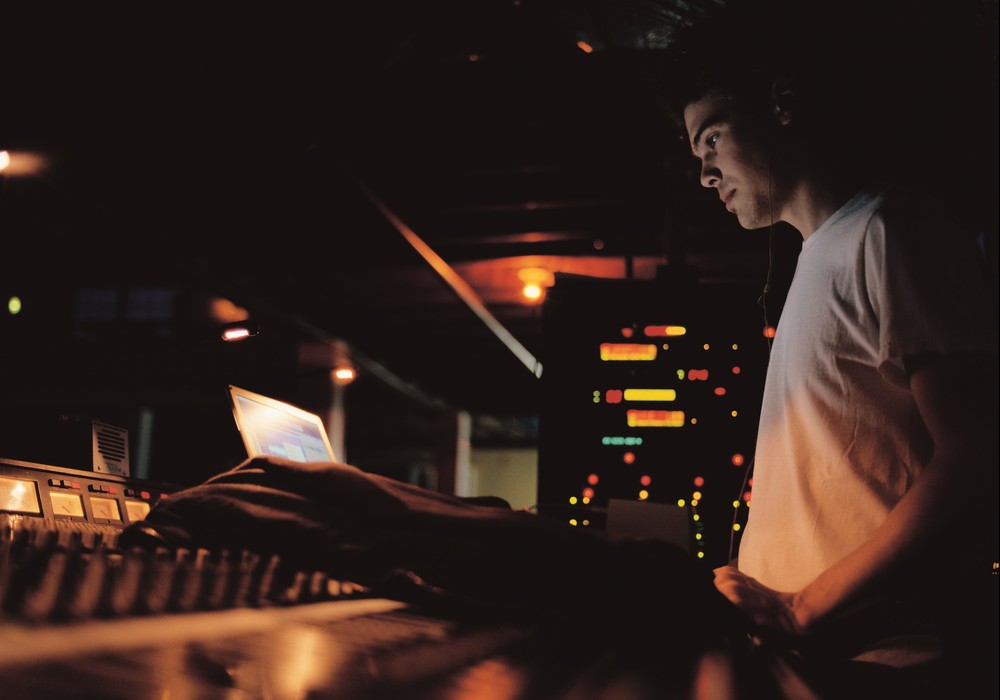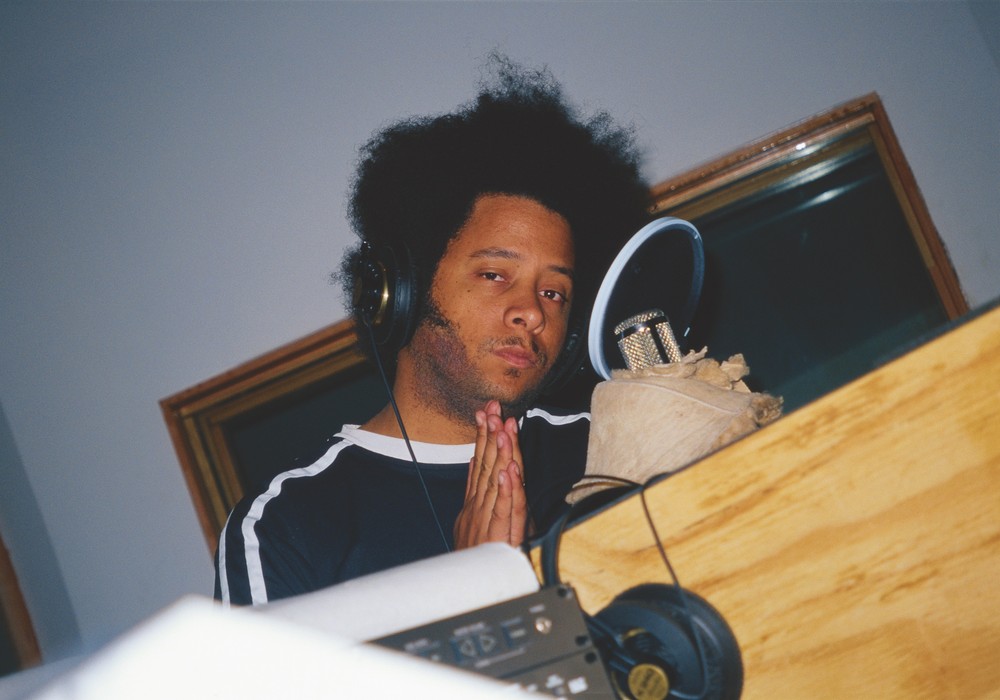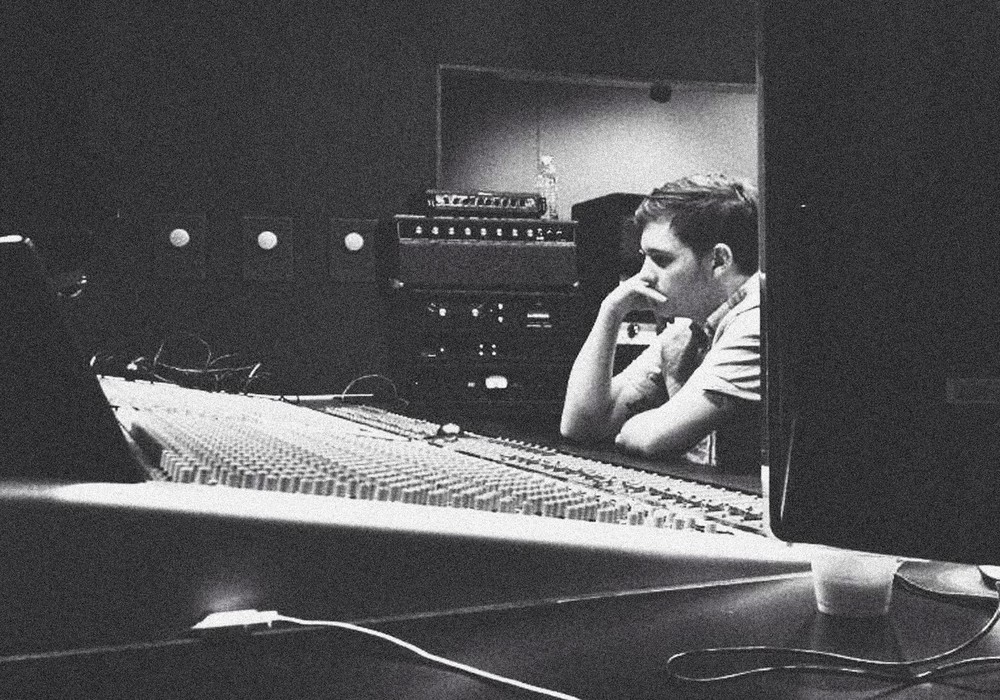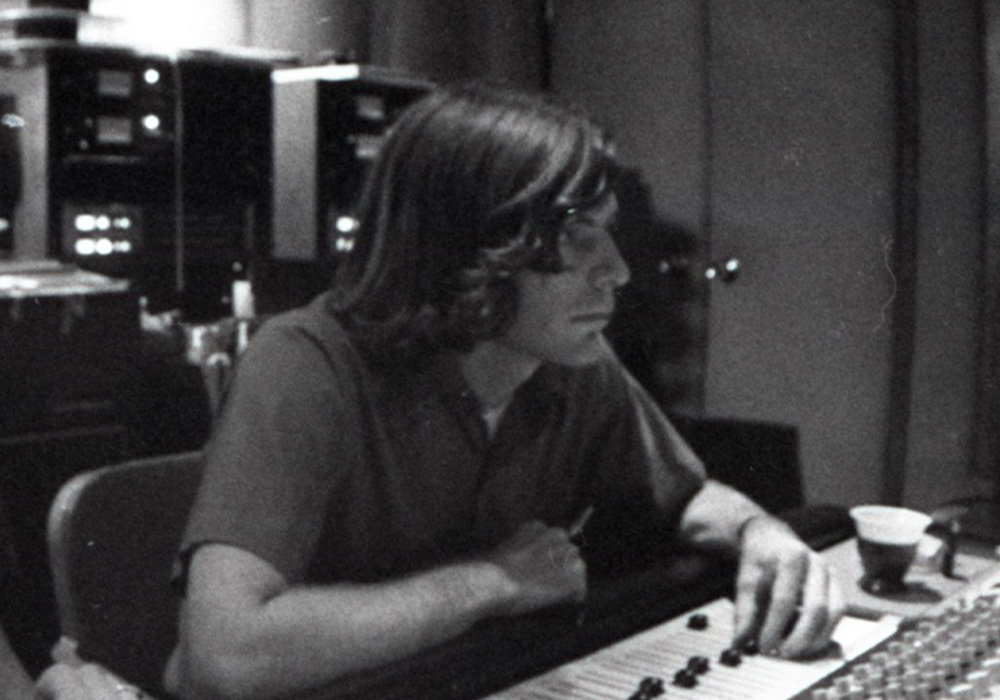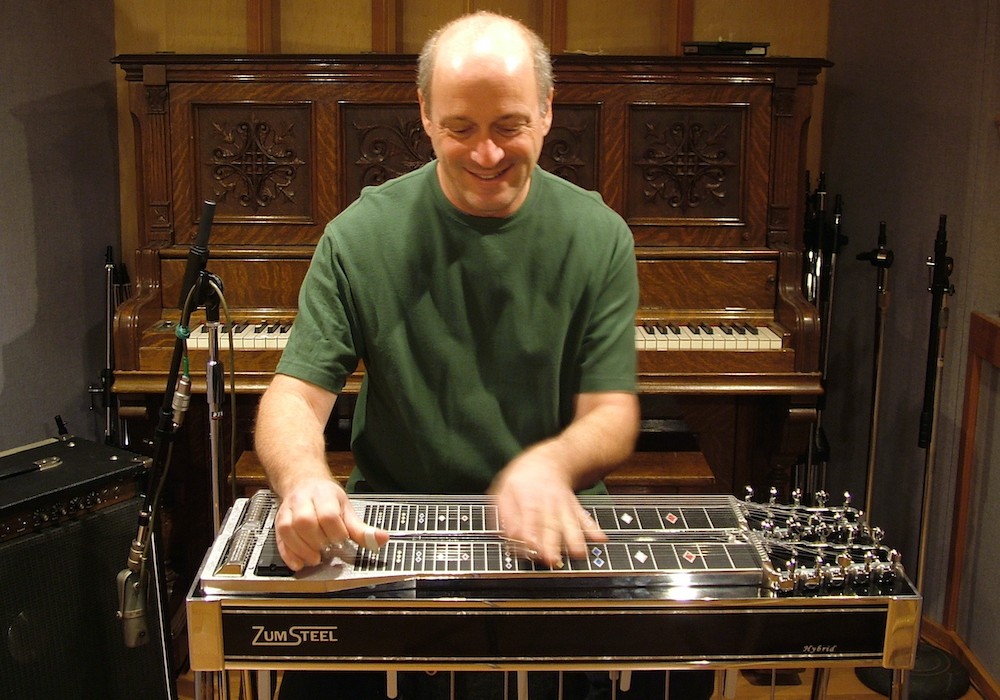It was a wet, shitty late November afternoon as photographer Brian Silak and I made our way across Manhattan's West 48th Street to the legendary New York recording institution known as Sear Sound. In case you're not familiar with Walter Sear and his famously firm crusade against bad digital recordings, you are in for a treat. Combine "Mr. Analog's" lifelong experience as a professional orchestral tuba player and designer, composer, music copyist and arranger, Theremin builder, early Moog modular synthesizer design and marketing collaborator, keyboardist, filmmaker, and (of course) engineer and producer with his vast knowledge and strong opinions pertaining to the history of recording as well as the current state of the industry, and the reader will be left with a true sense of one man's overwhelming passion for the art of recording.
In order to focus on Walter's own personal engineering and production philosophy, I have elected to leave out the intimate details of his incredible collection of over 235 classic microphones, in addition to Sear Sound's veritable museum of vintage, mainly vacuum tube, gear — for which Walter is justifiably famous in our circle. But what you will read here will make an impression!
Over the years Sear Sound has been in three different locations — 16 or 17 years each in two of the cases. What's motivated you to survive these and more recent changes in the industry, such as the rise of digital recording and home studios?
The idea that we can make it better, but that the rest of the world is fighting me and trying to make it worse. And it is. The music delivery system for the last 19 years [CD technology] has been far worse than the old vinyl discs. I ran a seminar at AES a few years ago. I found an LP and a CD — same material, same master tape, same mastering engineer. I put them on simultaneously and we cross faded back and forth. At the end, I said, how many like this? 150 engineers' hands went up. How many like this? And zero hands went up. It's shooting fish in a barrel. Anytime you A/B even the worst recorded, worst pressed LP and compare it to any CD, there is instantly [a difference], just like with vacuum tube mic pres.
Is it the actual physical process of vinyl? The physical construction of the grooves and the different playback mechanism?
It's wrong. My ears are still analog. In physics, you learn that any resistive device adds noise. Noise being distortion or any unwanted thing. The more conversions, the more devices, the more times it goes from analog to digital and digital to analog, you're making horrendous mistakes. There are clocking errors. There are thousands of resistive devices. It sounds terrible. And there is no question it sounds terrible. Except a whole generation has been told that it sounds great. And unfortunately, that's what the problem is. Digital technology has brought music back into the home. It should stay there.
Explain.
Bad is bad. We always had home tape recorders — I bought my first home tape recorder when I was in the Air Force. I did recordings, but I never was conceited enough to think I was doing professional recordings. That's the big difference. The industry, to quote my friend Russ Hamm, is no longer an industry of professionals. We gave that up about 15 years ago. It's become an amateur thing. It's very good as a music educator — you're always trying to get music back into the home. Now everybody has a nice home studio — the only trouble is they've been told by the salesmen that sell them the equipment that they're doing "professional recording" — and this is the furthest thing from the truth. I would not go to an amateur brain surgeon who had read a book and a few of the medical advertisements and have brain surgery done.
Yeah, that would be bad.
The old system, which no longer exists was, you'd come in as a runner/cleaner, and the assistants would talk to you occasionally and you'd begin to pick up little things. Then an assistant would get sick and they'd put you in a control room with a master engineer and you'd watch for two years. You'd watch what he did, and follow his instructions, and learn the microphones, and learn the setups and learn maintenance. My first job was at Fine Recording. I remember when I was interviewed and [Bob Fine] said, "Where did you get your EE [Electrical Engineering] degree?" and I said, "Sorry — I'm a Chem E." And, you know, everybody's nose went up in the air. But they had seen me in the studio...
Many of the newer engineers today don't come from technical or electrical engineering backgrounds.
But we were. I was a Chem E — and they let it slide.
There is a certain level of sophistication, which goes along with that.
Well, you're supposed to know physics. There's no question about knowing Ohm's Law and the math that goes with it, because we were building our own equipment — and I still am. It's back to my original theme: the industry has become totally ignorant....
